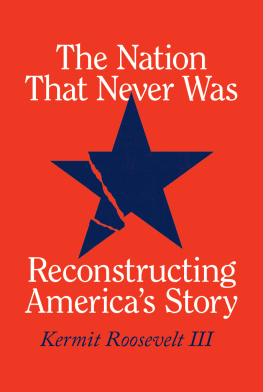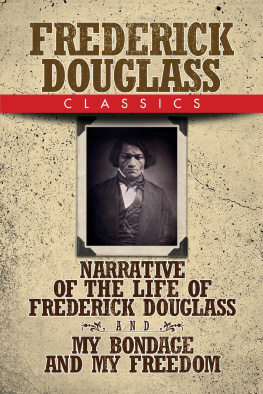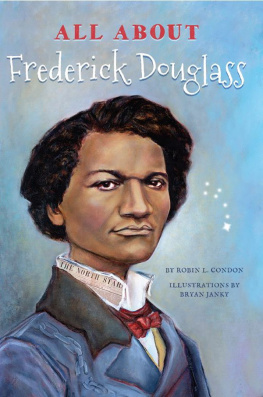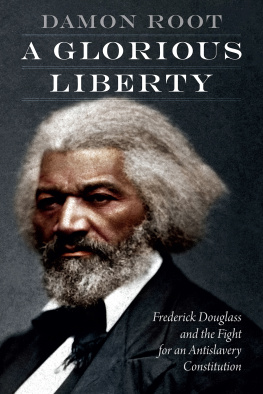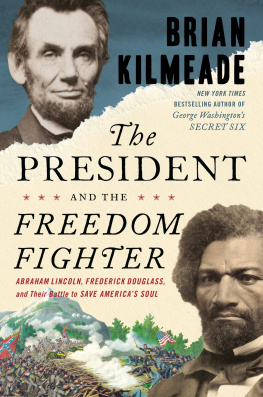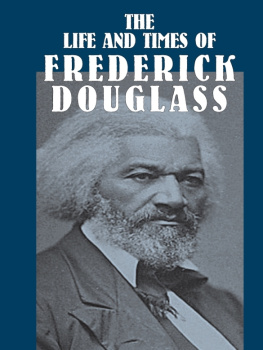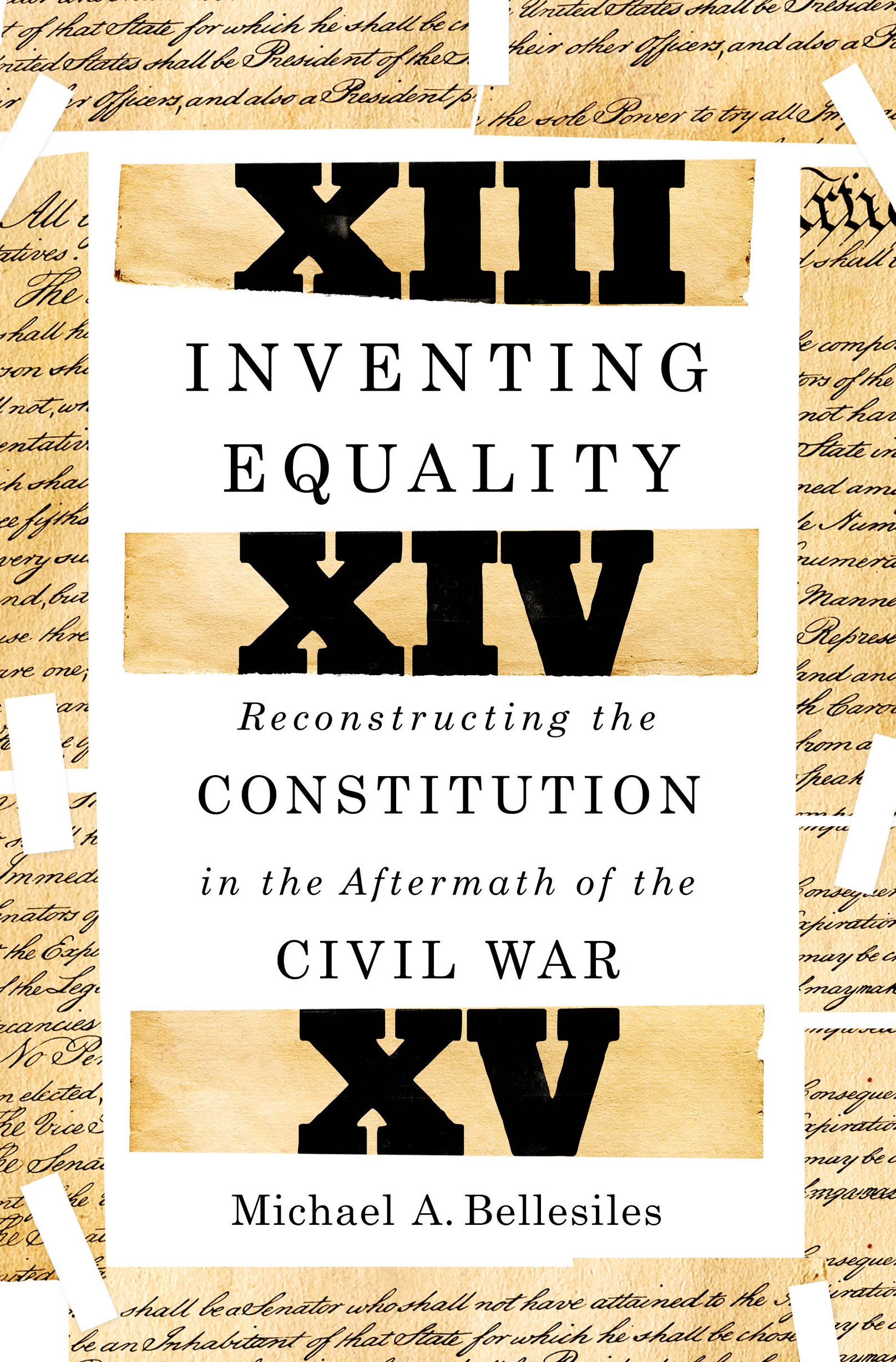Contents
Guide
Pagebreaks of the print version
The author and publisher have provided this e-book to you for your personal use only. You may not make this e-book publicly available in any way. Copyright infringement is against the law. If you believe the copy of this e-book you are reading infringes on the authors copyright, please notify the publisher at: us.macmillanusa.com/piracy.
For Dan Green with appreciation for a lifetime defending free speech
What to the slave is the Fourth of July?
On July 4, 1852, Frederick Douglass put this question to an Independence Day celebration in Rochester, New York. No ordinary critic of Americas slave system, Douglass existed because a white man had raped an enslaved black woman. Douglass had almost no memories of his mother, from whom he was separated as an infant at the whim of their owner. As a young boy he witnessed slaverys full range of depravity, on one occasion watching in horror as his new owner stripped his aunt, hung her from a ceiling, and whipped her.
Douglass determined at a young age to violate the rigid and brutal constraints of the slave system. Denied the right to exercise what he saw as the natural curiosity of the young, Douglass educated himself in violation of the law and risked a death sentence teaching other slaves to read. His owner quickly identified the young slave as a troublemaker and handed him over to a specialist in breaking unruly slaves. The subject of repeated vicious beatings, Douglass stole himself in 1838, fleeing the South and servitude. That flight failed to bring freedom, as he spent the ensuing eight years as a fugitive from American justice, aware that at any moment he could be seized by slave-catchers and returned to slavery.
In spite of this constant peril in the supposedly free North, Douglass frequently spoke out in public settings against American tyranny. Grievously beaten by a mob in Indiana and closely pursued by slave-hunters, Douglass fled to England in 1845 and then to Ireland, where he spoke to large crowds and became an instant celebrity. The publication of his memoirs that year cemented that fame on both sides of the Atlantic. After British supporters raised the funds to officially purchase his freedom, Douglass returned to the United States in 1846 a free man.
Strikingly handsome and imposing, with a dramatic crown of thick black hair, Douglass possessed a powerful speaking voice, the equal of any contemporary orators. Douglass knew how to move an audience, as he did that Independence Day in Rochesters Corinthian Hall. As he began his talk, the six hundred primarily white men and women leaned forward. At first he set them at ease, praising the nations founders for their commitment to human liberty.
Then came a sudden shift in tone. Slowly raising his voice, Douglass directly addressed his audience. They, he pointed out, could safely proclaim the freedoms they possessed as citizens of the United States, but what did the great principles of political freedom and of natural justice, embodied in that Declaration of Independence, have to do with Americans like him? Black Americans could not be part of this national celebration, which mocked their aspirations as well as the principles white Americans claimed as their own. The Constitution, while granting liberty to some people, validated the subjugation of millions. Making his audience ever more uncomfortable, Douglass emphasized each use of the pronoun youryour rights, your liberty. He then hit them in the gut by begging their pardon for asking, but what have I to do with your national independence? The celebration of American independence only served to underscore the distance between them, demonstrating the sacrilegious irony of a country proclaiming its love of freedom while upholding and protecting the institution of slavery.
Douglass spoke a truth few people wanted to hear: that when it came to its own supposed ideals, America is false to the past, false to the present, and solemnly binds herself to be false to the future. It was well past time to expose the nations hypocrisy.
The Constitution, in Douglasss words, is not an abstraction but the very bond of the Union, exerting great legal, political, and cultural influence. Its power came down firmly in favor of slavery. The Constitutional Convention betrayed the principles of the Revolution in producing a document that was radically and essentially pro-slavery, making every supposedly free American part of the body guards of slavery.
The shocked audience had invited Douglass to speak on a day celebrating freedom, and had likely expected him to offer a hopeful message about Americas trend in that direction. Instead, hed rubbed their noses in their own complicity, revealing the violence and hypocrisy beneath the celebrations of independence and equality. Slaves were also Americans, so the crimes of slavery were visited upon Americans by Americans. How could this perfect document, this Constitution that everyone claimed to venerate, be so flawed, so damaged at birth? No doubt some people dismissed his comments as the bitter rantings of a former slave unable to properly appreciate his good fortune in living in a free state. Yet Douglass raised disturbing points: How could the Constitution defend both freedom and slavery? What happened to the promised ideals of the Declaration of Independence so beautifully expressed in the glorious phrase all men are created equal? Why did so few white Americans embrace their own venerated doctrine?
Frederick Douglass saw what so many white Americans could not see or would not admitthat their country promoted and even celebrated inequality. His questions and his doubts about our shared commitment to the ideals we proclaim remain central to the history and development of the United States. We find his words echoing down the years, in documents public and private during the Civil War of 186165, and during the conflict for Americas future that we know as the Reconstruction era, 1865 to 1877. The questions arise repeatedly during the dark age of segregation and can be heard in Franklin Roosevelts State of the Union address of 1944 charging that those forced into dire poverty can never know true freedom. Douglasss language lives on in the ringing oratory of the civil rights and womens rights movements, in the great progressive Supreme Court decisions of the 1960s and 1970s, and in the bitter dissents of the twenty-first century. Through the seventeen decades since Douglass asked about the true meaning of the Fourth of July, the fundamental question persists: do we mean what we say about human equality?
American history can be seen as a battle to reconcile the large gap between our stated ideals and the reality of our republic. It is a struggle that cannot honestly be cast as one of steady progress toward ever greater freedom and equality. Every step forward appears to be matched by a step back. But neither can we just dismiss this history as a series of sad footnotes in a losing battle against intolerance. In so many ways the sweep of our history is the story of people fighting to expand the working definition of what it means to be an American citizen, and to determine who is worthy of that designation. It is a story of resistance to the anti-democratic forces fearful of change, and of courageous individuals who will not abandon the fight for human equality.
This book traces the evolution of that battle for true equality from the Revolution through the late nineteenth century. We begin by examining the bright promise of the Revolutionary period, with the high ideals propounded by the Declaration of Independence and the Constitution, showing how both documents ultimately contained the seeds of their own negation. Moving beyond the obvious contradiction of a slave owner declaring that all men are created equal, Chapter 1 identifies systemic legal flaws that ensured the inability of the nation to attain its stated ideal of legal equality. In a bitter irony, the Supreme Court itself made the case for the inherent weakness of the Constitution in its notorious


